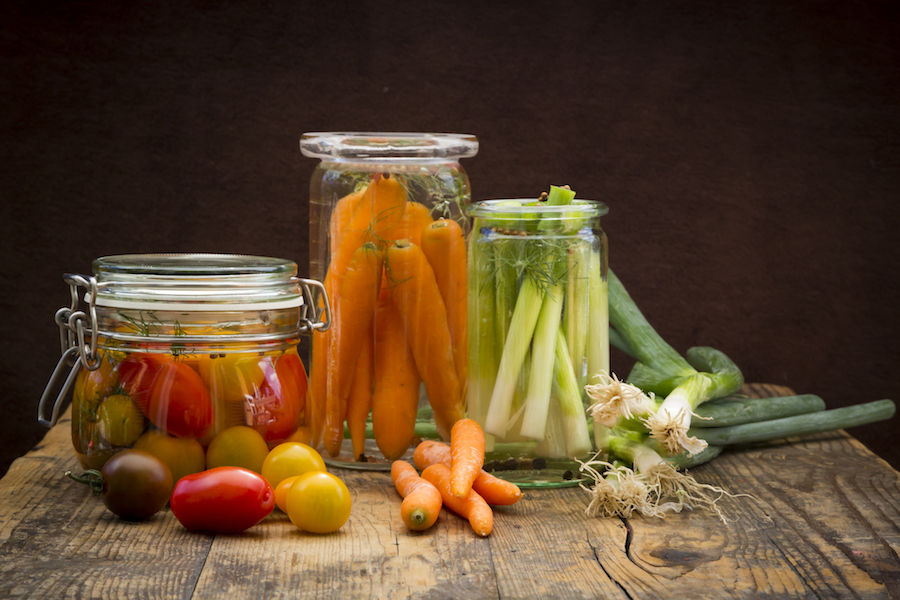Healing Your Body After Antibiotics

Gettyimages.com/Pickled spring onions and fermented carrots in glasses
Eat pickled foods
Pickled, fermented, and unpasteurized vegetables also give your gut some much-needed live probiotic cultures. Just a quarter of a cup of the stuff a day—whether you go with beets, pickles, carrots, or whatever you like in brine—should do the trick.









